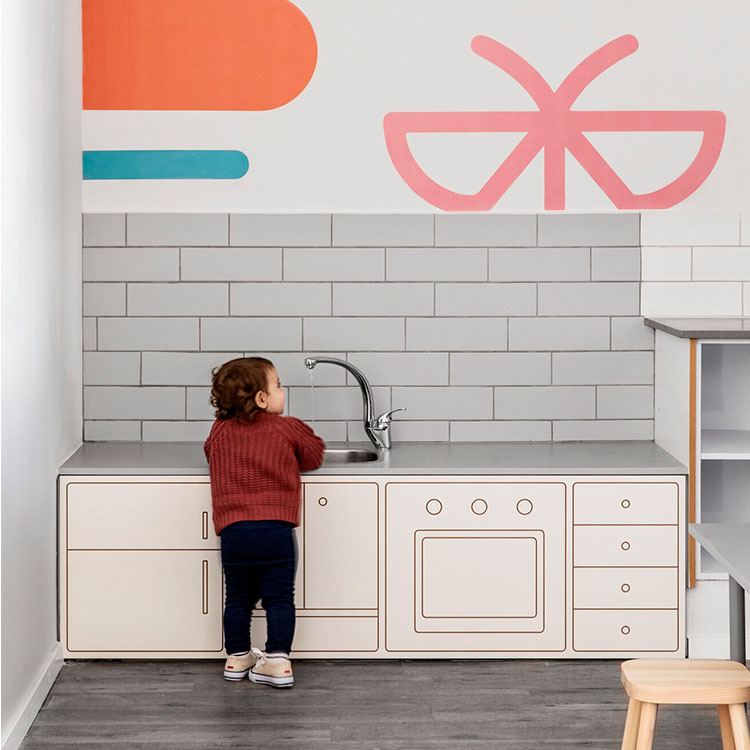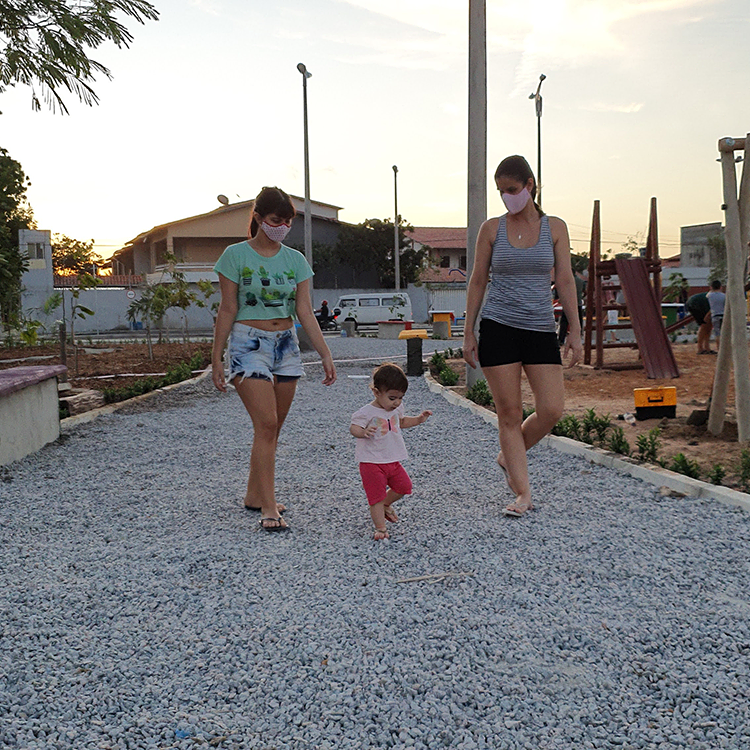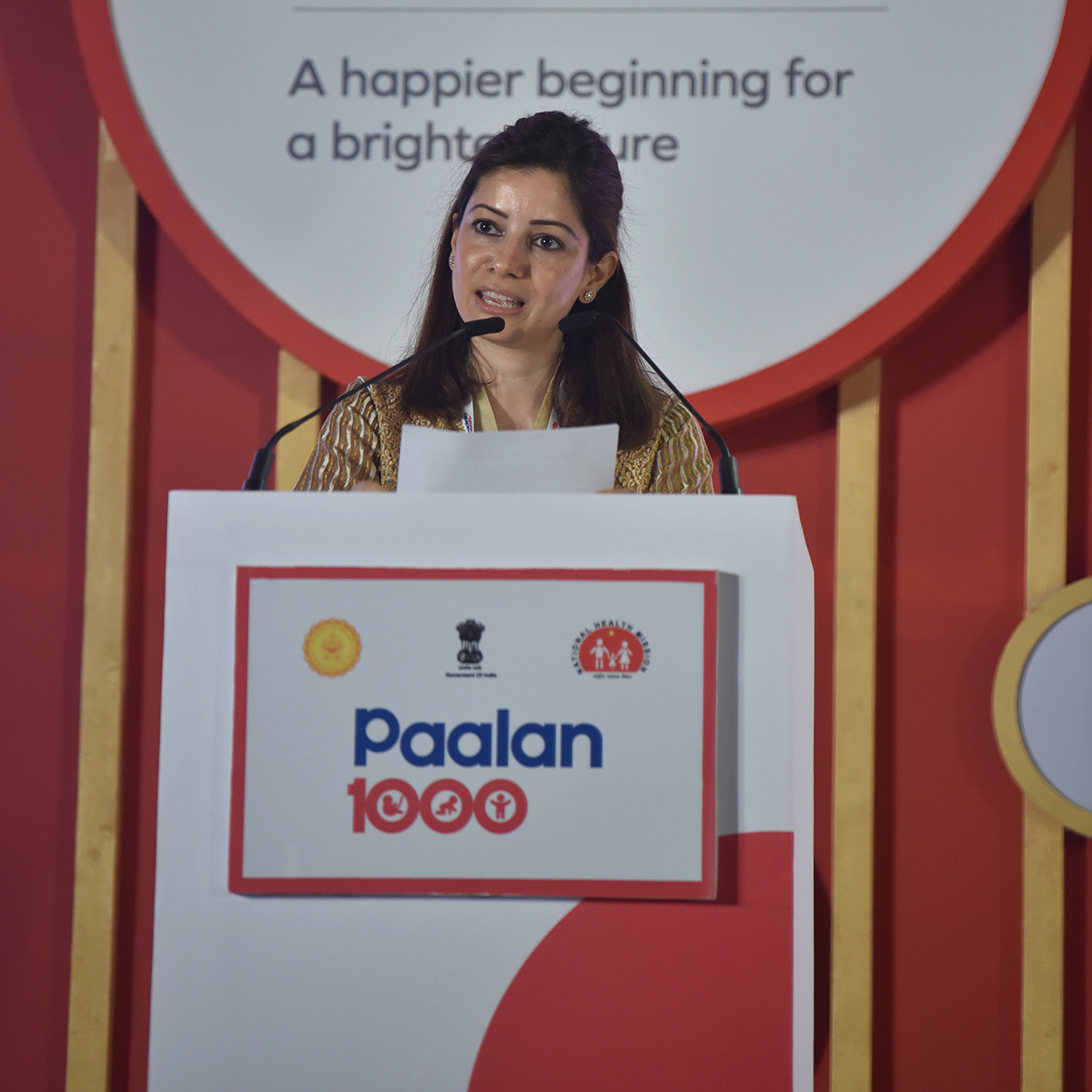When we at FMCSV (Maria Cecília Souto Vidigal Foundation) and partners began our early childhood development initiative Núcleo Ciência Pela Infância (Center for Science of Early Childhood) in 2011, we knew that effectively translating and communicating the science of early childhood would be critical to achieving our objective of mobilizing for change. To build a successful communications strategy, we first needed to understand people’s current perceptions of child development. With the Bernard van Leer Foundation’s support, we engaged the FrameWorks Institute to investigate.

Photo: Guga Ferri
The research showed that most people in Brazil already grasped the importance of children’s relationships and environment for their development – an important overlap with scientific understanding. However, the public did not appreciate the importance of brain development during the first year, instead focusing on a baby’s physical growth and abilities. Many were under the mistaken impression that cognitive development does not start to become important until the age at which people tend to have their own first conscious memories of childhood – that is, around school age.
The research also found that the public conceptualized a separation of responsibilities between families and schools, with families looking after children’s moral education and schools looking after their cognitive learning, rather than appreciating the need for parents and schools to work in partnership. Finally, the term “early childhood” itself was little known, and people did not immediately relate it to the first six years of life.
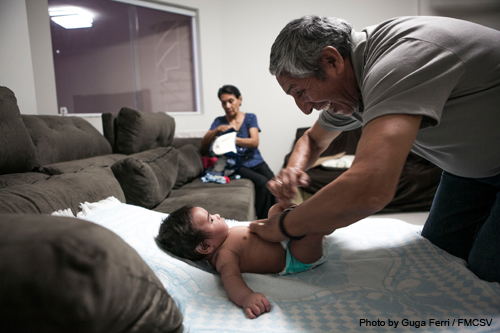
Photo: Guga Ferri
From the experience of translating this knowledge from research into a more effective communication strategy, we can suggest some tips for communicating about this issue in Brazil.
Do:
- Emphasise that a baby’s “development” is not only about things like grasping objects, sitting, crawling and walking, but also about things like being played with, being allowed to explore, listening to language, being comforted when they are unhappy, and feeling safe and protected in the arms of an adult.
- Explain the importance of brain development during early childhood – how it is vital to lay solid foundations for the child’s future.
- Stress that brain development happens most effectively through interactions between the child and other individuals with whom the child enjoys a stable, loving relationship.
- Identify in concrete terms the most common problems that disrupt healthy child development – violence, lack of sanitation, lack of health and education infrastructure, household accidents, and so on.
- Choose spokespersons who are professionally credible and able to communicate scientific messages without appearing arrogant.
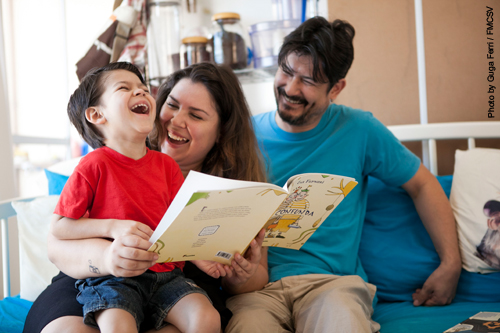
Photo: Guga Ferri
Avoid:
- Giving the impression that legislators or scientists should be able to dictate how families bring up their children, regardless of a family’s own aspirations.
- Using the term “early childhood” without referring explicitly to the age group in question.
- Using words such as “memory” and “storage” when talking about cognitive development, as they can reinforce the impression that cognitive development starts only when a child is old enough to form conscious memories.
- Making parents of young children think there is nothing they can do if they live amid violence and poverty, as loving relationships can protect children from many of the bad effects.
- Making parents of older children feel guilty and helpless about the things they didn’t do when their children were young – it helps to get the early years right, but they do not completely determine a child’s destiny.
- Mobilizing for change is always a challenge. It is important to get the right message across, be objective, engaging, focused and repeat it over and over again.
Ref. Lembrar, Espelhar e Experimentar: Distanciamento e sobreposições entre público e especialistas brasileiros sobre desenvolvimento na primeira infância. Instituto FrameWorks Jan 2014.
Author: Roberta Rivellino, Communications and Brand Manager at FMCSV, a partner of Núcleo Ciência Pela Infância.


